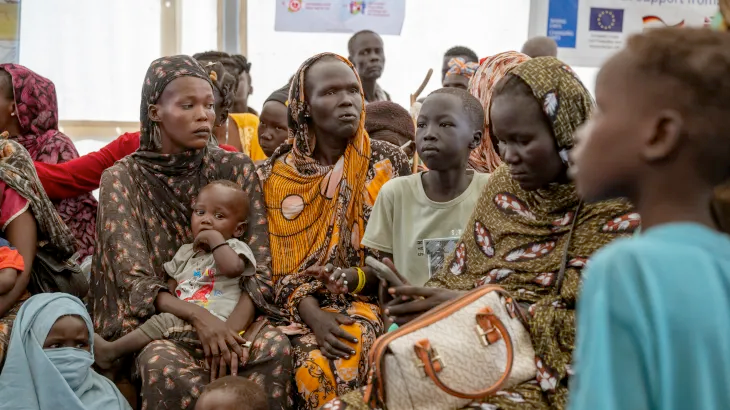Genocide Emergency: Myanmar, February 2021
- Genocide Watch

- Feb 22, 2021
- 3 min read
Myanmar (Burma): Genocide Emergency
February 2021

Military leaders overthrew Aung San Suu Kyi's elected government on 1 February (Getty Images)
Myanmar (Burma) has persecuted its Rohingya population since independence from Britain in 1948. Burma stripped Rohingya of citizenship in 1982. Following a Facebook hate campaign, hostility between the Buddhist Burmese majority and the Muslim Rohingya minority increased dramatically in 2012. In 2016 and 2017, the Burmese Army (the Tatmadaw) attacked and burned hundreds of Rohingya villages in Rakhine province, murdered thousands of Rohingya, and forced over a million Rohingya to flee their homes and seek refuge in Bangladesh.
The Myanmar Army’s attack on Rohingya in 2017 was genocide. Over ten thousand Rohingya were brutally murdered in their villages. Genocidal intent was demonstrated by landmines and Myanmar Army shooting of fleeing Rohingya at the border with Bangladesh. The forced displacement of a million Rohingya was driven by the terror caused by the Army’s genocidal massacres.
The Myanmar Army intentionally destroyed a substantial part of the Rohingya ethnic and religious group. Myanmar denied the Rohingya food and health care, and imposed conditions of life deliberately intended to destroy the group. It inflicted serious bodily and mental harm on members of the Rohingya group. Following exhaustive investigations, a UN Independent Fact-Finding Mission reported in 2018 and 2019 that there is overwhelming evidence that the atrocities committed against the Rohingya by Myanmar constitute crimes against humanity and genocide. It called for trials of top Myanmar generals.
Burmese leader and Nobel Peace Prize Laureate, Aung San Suu Kyi, denies allegations of genocide, refuses to grant citizenship to the Rohingya, and even rejects use of the name “Rohingya.” The Myanmar government has created the false narrative that the Rohingya are illegal migrants from Bangladesh. It calls them “Bengalis.” Myanmar says that its Army’s mass murders of civilians (including women and children,) were necessary parts of a “counter-insurgency campaign” against Islamic “terrorists.” Aung San Suu Kyi has made diplomatic visits to appeal to Islamophobia in India, Hungary, and other countries.
The Gambia charged Myanmar with violation of the Genocide Convention in the International Court of Justice (ICJ) in December 2019. The ICJ ordered Myanmar to protect the Rohingya against genocide in a Provisional Order in January 2020. The Court stated that the Rohingya are a protected group under the Genocide Convention, citing Articles 2 and 3. In September 2020, Canada and the Netherlands joined the case against Myanmar.
Bangladesh is relocating thousands of Rohingya to an island off its coast, ostensibly to provide better living conditions until they can be repatriated. Amnesty International and Human Rights Watch oppose the relocation plan due to reports that some refugees are forced or pressured to relocate. The UN Refugee Agency has not been allowed to assess the safety of the island, which may be vulnerable to storms.
On February 1, 2021, the army seized control of the government, detained Suu Kyi and other officials, and declared a one-year state of emergency. The army claims, without evidence, that widespread fraud occurred in the November 2020 election. Commander-in-chief Min Aung Hlaing, one of the main perpetrators of the Rohingya genocide, is now in power. Some believe the coup was motivated by Hlaing and other top army officials hoping to prevent Suu Kyi's National League for Democracy from taking full control of the Myanmar parliament. They may also want to avoid International Criminal Court charges. UN investigators report that security forces are using live ammunition against those protesting the coup. Many fear conditions may worsen for the 130,000 Rohingyas still living in the open-air prison camps in Myanmar that UN officials have compared to concentration camps.
Genocide Watch considers Myanmar to be at Stage 9: Extermination.
Genocide Watch recommends:
France, Bangladesh and other countries should file memorials in the ICJ joining Gambia’s case against Myanmar.
The press, UN, and human rights groups should use the word ‘genocide’ to describe the atrocities against the Rohingya, and stop using the euphemism used for genocide denial, “ethnic cleansing.”
The Myanmar Army must release Aung San Suu Kyi and other the detained officials, end its state of emergency, and allow the democratically elected government to take power.
Following diplomatic agreements with Myanmar using economic incentives, Rohingya must be free to return to Myanmar under armed UN or regional protection with full citizenship.






